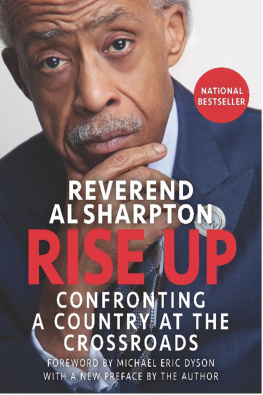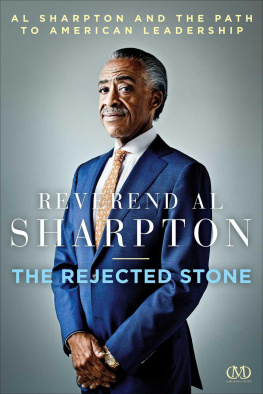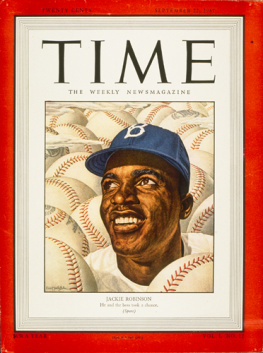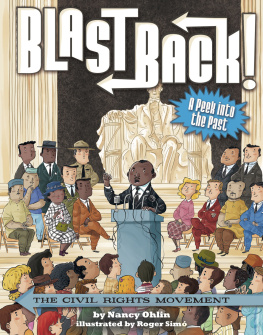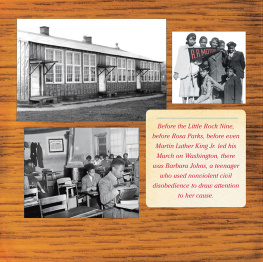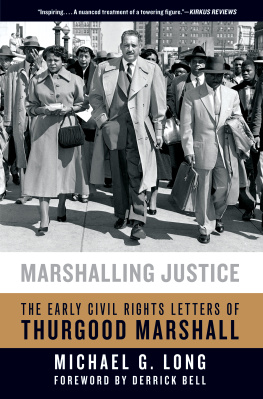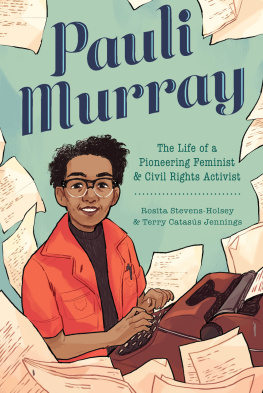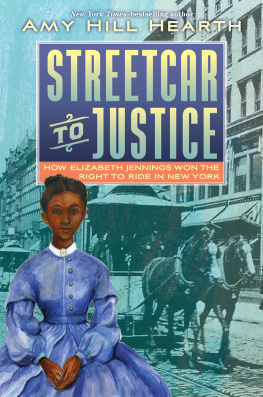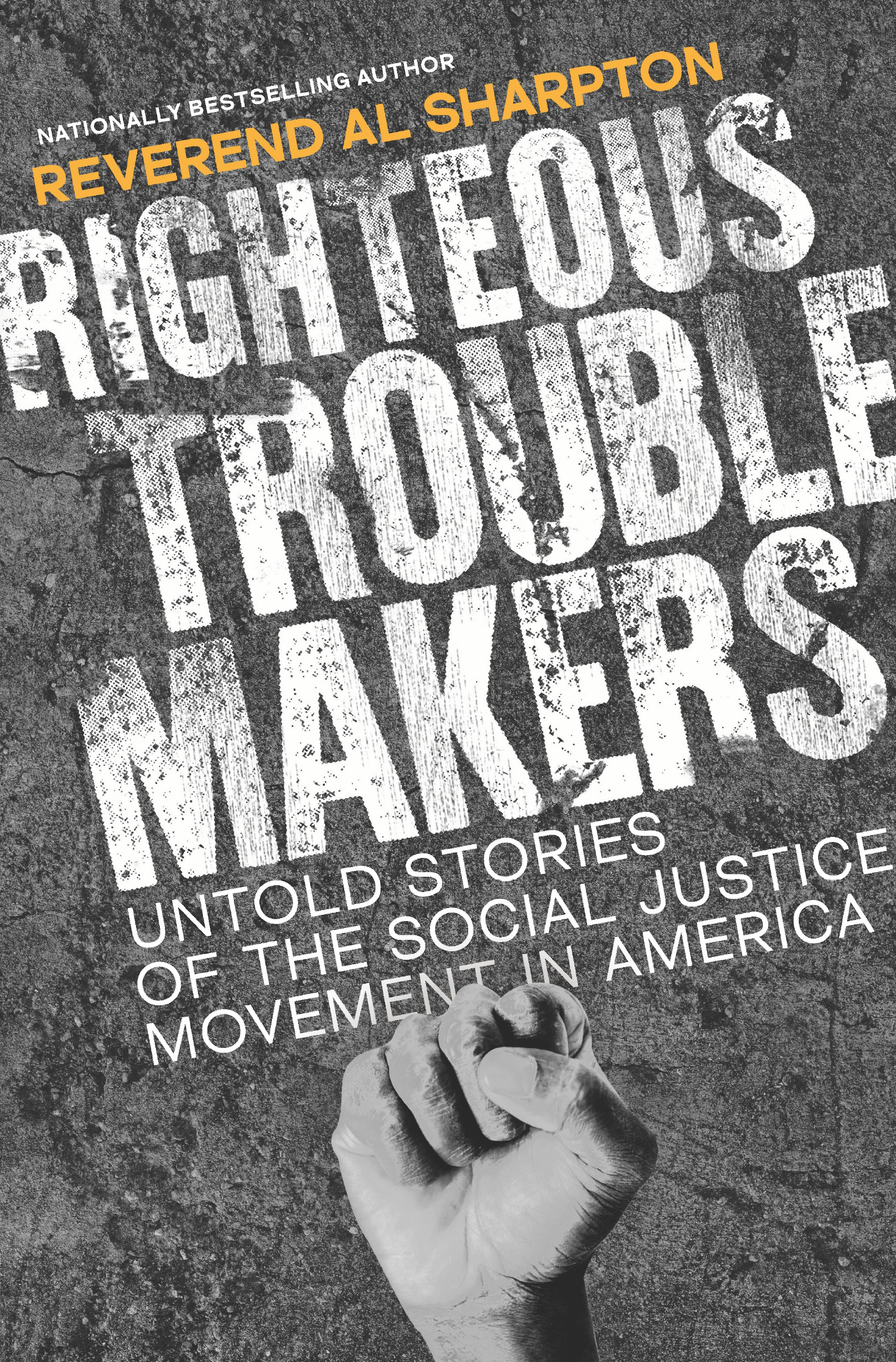
Praise for Rise Up
My Bed-Stuy (do-or-die) brother has been at the forefront of our battles again and again. From way back in da way back to this present revolution the world is in now, Rev. has been about Black Lives Matter from the jump, also at a time when it was not the most popular or hip thing to be about. I look forward, standing next to him, to see, to witness this new energy, this new day that is about to be in these United States of America.
Spike Lee
This man is a gift from God to the world. This book is a gift from Al Sharpton to us. Lets appreciate them both.
Michael Eric Dyson
Reverend Sharpton has fought on the front lines for civil rights for decades. As the events of 2020 have shown, that fight is far from over. In this inspiring, personal book, he shows us a path forward. If you want to learn how to use your voice to change a nation, you should study closely this manand this book.
Van Jones
Reading Rise Up was an informative and motivational pleasure to absorb. Full of history, honesty, and valuable suggestions, Rise Up should be a staple in every home, school, and library as an essential primer on civil and political rights in America. Rev. Sharpton addresses our nations original sin; explains why we cant afford to be satisfied with creature comforts while others still suffer and offers solutions in the non-violent tradition of my father and others regarding where we go from here. I highly recommend Rise Up without reservation to anyone mature enough to read and grasp the necessity of living life with a heart full of love and devoid of racism.
Martin Luther King III
Reverend Al Sharpton is the host of MSNBCs PoliticsNation and the founder and president of the National Action Network (NAN), one of the leading civil rights organizations in the world. With over forty years of experience as a community leader, politician, minister, and advocate, Reverend Al Sharpton is one of Americas most renowned civil rights leaders. Reverend Sharpton also hosts the nationally syndicated radio show Keepin It Real, which broadcasts in forty markets, five days a week. He resides in New York.
Instragram: @Real_Sharpton
Twitter: @TheRevAl
Righteous Troublemakers
Untold Stories of the Social Justice Movement in America
Reverend Al Sharpton

I dedicate this book to the lesser-known soldiers for justice, many of whom have worked with me and National Action Network (NAN) over the past thirty years despite not having been formal staff members. Whether they were marching for Rodney King in 1991 (the year NAN was founded) or marching for George Floyd today, these individuals have been steadfast in their support. This list is by no means complete but represents those individuals who have helped advance the social justice movement over the last quarter of a century in the areas of voting rights, police reform, womens rights, LGBTQIA rights, and more.
Thank you for your work.
Beverly Alston
Acutha Bakar
Leonard Bentley
James Bligen
Ben Brown
Anthony Charles
Gene Collins
Fitzgerald Cox
Josh Cureton
Cynthia Davis
Christine Dudley
Nadirah El-Amin
Neal Faison
Sheldon Fisby
Marcia Fitzgerald
Theresa Freeman
Dottie Golson
Ben Gooding
Russell Graddy
Bill Griffin
Lawrence Harvey
Reverend Carolyn Haynes
Jamillah Hedgemond
Pat Henry
Mother Sarah Hunt
Henry Johnson
Nathaniel Brother Monk Jones
Reverend Magora Kennedy
Margaret Lamb
Maxine Lewis
JD Livingstone
Stan Mallory
Charles Matthews
Marcia McCoy
Helen McMillan
Lois Menyweather
Bishop Anthony Monk
Norman Nash
Katherine Nichson
George and Eloise Obagane
Louis Papa
Alishe Pascal
Paula Peebles
Anthony Phillips
Heru Plunkett
Tena Pondexter
Dr. Noretta Ray
Norman Grandad Reid
Brenda Ricketts
Sharon Smith
James Sneed
Rick Taylor
Marie Thompson
Ossie Thompson
Ms. Ivy Walton
Donald Hasan Washington
Dr. Ramona Whaley
Denise Wray
Dr. Camille Yarborough
Contents
Introduction
The March Aint Over
What will be our legacy? Will future generations remember you for your complacency or your inaction? Or will they remember you for your empathy, your leadership, your passion for weeding out the injustice and evil in our world?
BRIDGETT FLOYD, George Floyds sister
In August of 2020, National Action Network (NAN), with the support of the National Association for the Advancement of Colored People (NAACP), the National Urban League (NUL), and the Hispanic Federation along with several clergy groups, unions, and civil rights groups organized the Get Your Knee Off Our Necks Commitment March in Washington, DC. I announced the march while giving the final eulogy for George Floyd, who was murdered by former police officer Derek Chauvin in Minneapolis, Minnesota, on May 25, 2020, after Chauvin knelt on Georges neck for nine minutes and twenty-nine seconds. I hadnt planned on organizing a nationwide march, but the moment and the people demanded it.
To say that Georges murder launched an uprising would be an understatement: between 15 million to 26 million people participated in demonstrations in America. The protests were at their peak on June 6, 2020, when half a million people raised their voices in nearly 550 places across the United States. According to scholars and crowd-counting experts, that kind of turnout made the protests the largest movement in the countrys history. Georges death was an inflection point. The Black Lives Matter movement, which had already taken root in several cities and communities around the country, forced Americans from coast to coast to say, Enough is enough to police brutality.
The march was planned for August 28, fifty-seven years to the day when, in 1963, Dr. Martin Luther King Jr. famously delivered his I Have a Dream speech. As I made my way to the podium on that hot summer day, an older Black man caught my eye. He wore an original button from the original 1963 march on the lapel of his lightweight jacket.
Rev, he shouted, waving me over. I approached him. We talked a bit and he told me that hed attended Dr. Kings march and came to stand in solidarity with the new generation of changemakers. The march aint over, he said.
No justice, no peace, I said.
He nodded, turned, and disappeared into an audience two hundred thousand strong. I didnt catch his name, but this man was on my mind as I took my place at the podium, literally standing on the same marble step where King had called out the infirmities that plagued Black Americans fifty-seven years ago, addressing the unspeakable horrors of police brutality, voter suppression, and Jim Crow, among other indignities. It didnt go unnoticed by me nor others that only a few hours earlier and just one mile away, President Donald Trump had stood on the South Lawn of the White House to condemn us. In his mind, we were agitators bent on destroying the American way of life. To my way of thinking, we didnt come to start trouble. I said as much in my speech, my voice echoing on the loudspeakers. We came to stop trouble, I said. You act like its no trouble to shoot us in the back. You act like its no trouble to put a chokehold on us while we scream I cant breathe eleven times. Mr. Trump, look right down the block from the White House. Weve come to Washington by the thousands. The sound of the cheering crowd was like that of a roaring ocean, powerful. If we were troublemakers, then we were of the righteous sort, fighting the good fight and demanding a new national reckoning with hate, bigotry, systemic racism, and police brutality.
Next page
